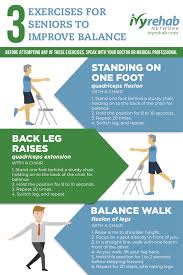
It is crucial to recognize the signs and get immediate medical attention to prevent a heart attack. Heart attacks are caused by blockage of blood flow to part of the heart. Fat deposits and other factors can block the coronary artery. This can reduce blood flow to the heart and starve it of oxygen. In addition, the lack of oxygen can cause tissue damage to the heart.
Lifestyle changes are a good idea if your heart is in poor condition. This includes eating a healthy and controlled diet. Additionally, you should follow recommended treatments for cardiac conditions.
A healthy weight is also important. Being overweight increases the risk of multiple diseases, including heart disease. You should also keep in mind the fact that smoking can increase blood pressure.
You can avoid a heart attack by taking medications to lower your blood pressure. Talk to your doctor if you aren't currently on medication. Antiplatelet medications may also be prescribed. They are used for preventing platelet clumping. Some people may also be prescribed low-dose aspirin.

There are ways to reduce the amount of fat that you consume. Atherosclerosis can be caused when unhealthy fats are consumed. Instead, increase your intake of foods that are high in fiber, including fresh fruits and vegetables. Fruits are rich in vitamins and minerals. Vegetables can be a great source of soluble fiber which can help reduce the risk of developing cardiovascular disease.
Low-fat dairy products, as well as poultry, are essential for a heart-healthy diet. Avoid foods high in saturated fats and added sugars. If you do have to eat meat, make sure it is lean and less than 10 per cent fat.
Staying active can help you reduce your risk of getting heart disease. Aerobic exercise, such as walking or jogging, can improve the flow of blood to the heart. The body can also be less inflammatory by eating a healthy diet.
Limiting the amount of alcohol that you consume is another important thing. Blood pressure can be increased by drinking alcohol. People who drink more alcohol than twice a week are more susceptible to developing heart problems.
Saturated fats and sodium can increase your risk for heart disease. Processed foods are often high in these substances. Increase your intake of whole grains, legumes, fruits and vegetables. You should be getting 7 to 9 hours of sleep every night. The ability to get enough sleep is associated with a lower chance of high blood pressure, diabetes, and obesity.

Your healthcare provider can help customize a diet plan for you. You may also be able to get lifestyle modifications that will reduce your chances of having a cardiac attack.
You can prevent heart attacks by changing your eating habits. You are more likely to develop inflammation if you eat processed foods. This can be avoided by switching to a healthy diet high in fresh fruits, vegetables, low-fat milk products, and other healthy foods.
FAQ
What is the difference between a virus and a bacterium?
A virus is an organism microscopic that can't reproduce outside its host cells. A bacterium (or single-celled organism) reproduces by splitting itself into two. Viruses are very small (about 20 nanometers) while bacteria are larger (up to 1 micron).
Viruses can spread from contact with bodily fluids that are infected such as saliva, urine or semen. Bacteria are often spread via direct contact with contaminated surfaces and objects.
Viruses can enter our bodies through cuts, scrapes, bites, or other breaks in the skin. They can also be transmitted through the eyes, nose, mouth, ears, vaginal, rectum, and anus.
Bacteria may enter our bodies through cuts and scrapes on our skin, burns, insect bites, and other wounds. They can also get into our bodies via food, water or soil.
Both bacteria and viruses cause illness. But viruses do not have the ability to multiply within their hosts. They only infect living tissues when they cause illness.
Bacteria may spread to other people and cause sickness. They can spread to other parts of our bodies. That's why we need antibiotics to kill them.
What is the difference between fat and sugar?
Fat is an important energy source, which comes from food. Sugar is a sweet substance that can be found naturally in fruits or vegetables. Both fats (and sugars) have the exact same calories. Fats have twice the calories of sugars, however.
Fats are stored in the body and contribute to obesity. They can increase cholesterol levels in the arteries and cause strokes and heart attacks.
Sugars are quickly absorbed and provide instant energy. This causes blood glucose levels in the body to rise. High blood glucose levels can pose a danger because they increase the chance of developing type II Diabetes.
These are the 7 secrets to a healthy life.
-
Take care of your health
-
Exercise regularly
-
Sleep well
-
Drink lots of water
-
Get enough sleep
-
Be happy
-
Smile often
Statistics
- nutrients.[17]X Research sourceWhole grains to try include: 100% whole wheat pasta and bread, brown rice, whole grain oats, farro, millet, quinoa, and barley. (wikihow.com)
- WHO recommends reducing saturated fats to less than 10% of total energy intake; reducing trans-fats to less than 1% of total energy intake; and replacing both saturated fats and trans-fats to unsaturated fats. (who.int)
- According to the 2020 Dietary Guidelines for Americans, a balanced diet high in fruits and vegetables, lean protein, low-fat dairy and whole grains is needed for optimal energy. (mayoclinichealthsystem.org)
- In both adults and children, the intake of free sugars should be reduced to less than 10% of total energy intake. (who.int)
External Links
How To
How to stay motivated for healthy eating and exercise
Motivation tips for staying healthy
Motivational Tips for Staying Healthful
-
Make a list with your goals
-
Realistic goals
-
Be consistent
-
Reward yourself when you achieve your goal
-
Do not give up even if you fail your first attempt.
-
Have fun